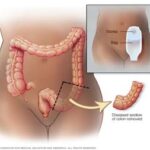
Sleep: The Key to Soft Tissue Recovery
One critical part of athletic performance and overall fitness is muscle recovery, for which sleep plays a significant role. Research shows that sleep is important for muscle repair, growth and recovery in general. A study from 2011 looked into the effects of sleep deprivation on muscle gains found that those who got only 5.5 hours of sleep per night had a significant drop in recovery as opposed to their counterparts that slept for up to8.5hours.
Sleep and Recovery of Muscles
Hormonal Regulation Sleep has a profound effect on the secretion of hormones necessary for muscle recovery, such as growth hormone (GH) and insulin. The reason is that during sleep, especially in deep sleeping stages your GH levels are higher (GH replenishes tired tissue and put muscle mass on) 46. On the other hand, inadequate sleep can decrease GH production and hurt recovery attempts.
Protein Synthesis: A proper night of sleep increases protein synthesis, and decreases muscle breakdown. Sleep deprivation causes a greater catabolic response that has been linked to muscle loss and the poor recovery from exercise-induced damage56. Such a disparity can be detrimental to athletes depending on optimal recovery for performance.
Inflammatory Response: Sleep deprivation disrupts inflammatory markers and cytokine levels in our body which can make recovery processes more complicated. For instance, a study demonstrated that when humans were subjected to total sleep deprivation (TSD) after muscle damage had occurred by eccentric exercise of the elbow flexors it altered cytokine production without impeding recovery in muscle strength3. This implies that although the initial power is not impacted, long-term recovery might be compromised.
Conclusion
To sum up, when muscles are getting repaired it is less effective and efficient if there is no sleep. Sleep is known to be an important time for hormone regulation, protein synthesis and also coping with inflammation—all essential elements of muscle recovery. Consequently, quality rest is a cornerstone strategy to optimize performance and sustain recovery in any training program.

